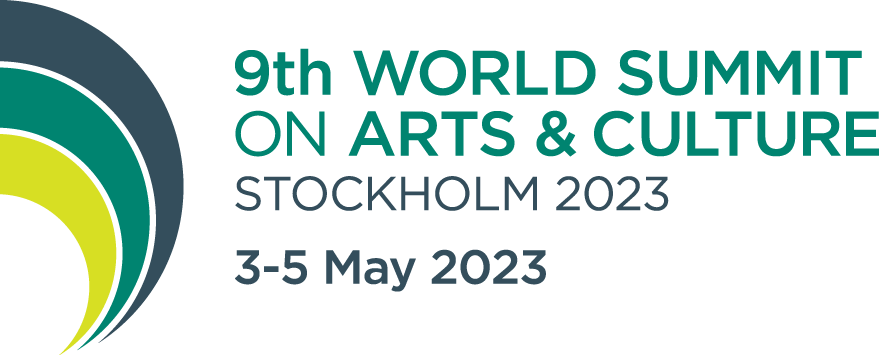Programme Approach
Our Approach
Issues of human rights – such as freedoms of expression, information and communication as well as cultural rights – are at the heart of artistic freedom; and they will anchor the programme, which will be rooted in a rights framework. Throughout the Summit, we will assess how a rights framework can be used, and improved, to safeguard free artistic expressions and participation in cultural life.
In order to foster discussion and exchange of ideas, the sessions will feature experts and people with lived experience who will identify key issues; explore how these issues may be addressed; and extract points of global contextual convergence or divergence. Participatory sessions will create opportunities for peer engagement and exchange; and the programme will reflect our spirit of collaborative creativity, to raise and debate solutions that participants can apply in their own work.
Most importantly, the programme will create safe spaces for participants to engage in conversations that may be difficult at times, as we reflect critically on ourselves and our practices; challenge ourselves with alternative thinking; and reimagine our roles, informed by the perspectives of fellow participants.
Guiding Principles
We recognise that the terms used throughout the programme are open to active interpretation. For the purpose of developing shared understanding, we will use the following principles to guide our thinking on key concepts:
Artistic freedom entails human rights recognised and protected under international law, including the rights to create without censorship or intimidation; to have artistic work supported, distributed and remunerated; to freedom of movement; to freedom of association; and to the protection of social and economic rights. It is the freedom to ‘imagine, create and distribute diverse cultural expressions free of governmental censorship, political interference or the pressure of non-state actors. It includes the right of all citizens to have access to these works and [it] is essential for the wellbeing of societies’ (UNESCO 2019).
Across the world, different societies understand and conceptualise the notion of artistic freedom differently. Therefore, the interpretation of what needs to be protected and/or safeguarded, understanding of the impinging pressure points and potential for contextual inconsistencies in application, and avoiding misunderstandings in transnational encounters, all need to be at the foreground in the discussions on artistic freedom. To safeguard and advance this freedom is to use adequate and appropriate measures to work with – and on behalf of – people to protect them and their rights from abuse, deprivation, and manipulation.
Freedom of expression is a fundamental human right enshrined in Article 19 of the Universal Declaration of Human Rights. Along with its corollaries of freedom of information and press freedom, freedom of expression serves as an enabler of all other rights.
Cultural rights protect access to, participation in, and enjoyment of culture. Recognised under Article 27 of the Universal Declaration on Human Rights, cultural rights include: the rights of individuals and communities to enjoy and make use of cultural heritage and cultural expressions; the right to play an equal role to identify, safeguard and transmit their cultural heritage; and the right to the protection of the moral and material interests that result from any scientific, literary or artistic production.
Equity exists where decisions are made – and resources are allocated – fairly to reflect the different contexts in which different people live, to consider their relative needs, and to enable them to access and exercise their rights. This notion of equity also recognises that, amongst other issues, there are critical questions to be asked and answered about difference, ‘otherness’ and prejudice in its myriad manifestations (such as race and ethnicity) across all aspects of the cultural ecosystem.
Social justice may be broadly understood as the fair distribution of resources to ensure people have equitable access to rights, opportunities, and wellbeing; and can participate in decisions about matters that concern them. This notion of social justice is predicated on how critical it is for the global arts and cultural community to recognise and collectively seek to address the barriers to participation in cultural life and impediments to artistic freedom, including disability and gender issues amongst others.
Gender Equality is integral to artistic freedom in expression and participation in cultural life. This considers women’s and LGBTQI+ rights to artistic freedom being neglected and marginalised in places where people suffer harassment, exclusion and silencing because of their gender.
Decolonisation refers to the process in which we rethink, reframe and reconstruct the impact of colonialism on the social, cultural, economic and educational life of people. It is an empowering tool to challenge established beliefs that serve to perpetuate, in both overt and subtle ways, the preservation of a dominant narrative or colonial lens through which culture is interpreted, valued, created and shared.

